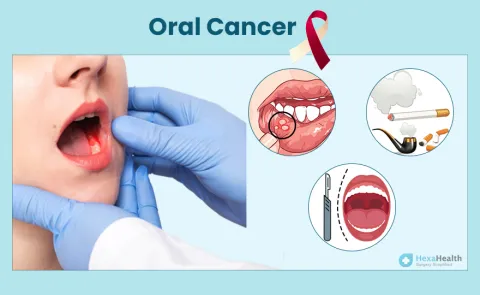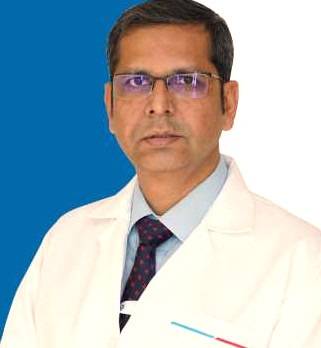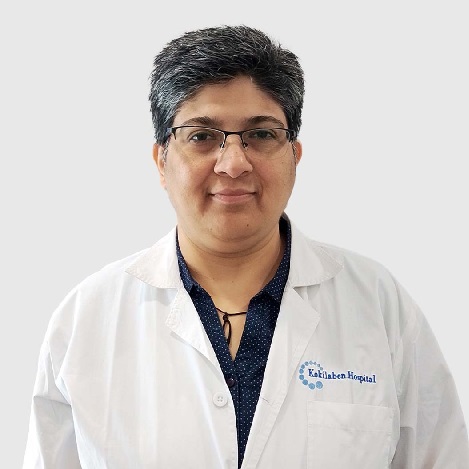Embarking on the journey to combat oral cancer requires a personalised approach tailored to each individual's condition. Various treatment options, including surgeries, are available to target the primary tumour and manage its potential spread effectively.
Ayurvedic Treatment For Oral Cancer
Ayurvedic treatment for oral cancer focuses on holistic healing, aiming to balance the body, mind, and spirit. It involves a personalised approach based on an individual's unique constitution. Some Ayurvedic treatments for oral cancer may include:
Herbal Remedies: Ayurvedic practitioners may prescribe specific herbs like turmeric, neem, ashwagandha, and tulsi, known for their anti-cancer and immune-boosting properties.
Detoxification Therapies: Panchakarma, a set of Ayurvedic detoxification procedures, may be recommended to eliminate toxins from the body and enhance overall healing.
Ayurvedic Medicines: Ayurvedic formulations, such as herbal decoctions, oils, and powders, may be prescribed to address specific symptoms and promote healing.
Homoeopathic Treatment For Oral Cancer
Homoeopathic treatment for oral cancer aims to stimulate the body's self-healing abilities and restore balance. Homoeopathic remedies are selected based on an individual's unique symptoms, constitution, and overall health. Some commonly used homoeopathic remedies for oral cancer include:
Carcinocinum: This remedy is often prescribed for various types of cancer, including oral cancer, and aims to support the body's response to the disease.
Conium may be recommended for oral cancer with hardened growths, difficulty swallowing, and pain radiating to the ears.
Thuja: This remedy is considered when there are warty growths, foul breath, and sensitivity to touch in the affected area.
Hydrastis Canadensis: It may be prescribed for oral cancer with ulceration, excessive salivation, and a sensation of rawness.
Phytolacca: This remedy is used for oral cancer with intense pain, difficulty in opening the mouth, and swollen lymph nodes.
Surgeries for Oral Cancer Treatment
The doctor may recommend one of the following surgical treatment methods for oral cancer based on the stage of cancer and other factors.
Glossectomy: A specialised procedure where healthcare providers partially or completely remove the tongue, aiming to eradicate the affected area and minimise the spread of oral cancer.
Mandibulectomy: Surgical intervention specifically designed to address oral cancer located in the jawbone involves removing the affected portion, ensuring effective treatment and preservation of oral functionality.
Primary Tumour Surgery: A surgical intervention that involves the removal of tumours either through the oral cavity or by making an incision in the neck, allowing healthcare providers to eliminate the source of the cancerous growth precisely.
Sentinel Lymph Node Biopsy: A crucial diagnostic test aiding healthcare providers in determining the potential spread of oral cancer beyond the primary site, offering valuable insights for devising an effective treatment plan.
Maxillectomy: A surgical approach that focuses on removing part or the entire hard palate, the bony roof of the mouth, aiming to eliminate oral cancer while preserving the essential structures and functions.
Reconstruction: After removing significant tissue areas affected by the tumour, reconstructive surgery becomes vital to restore form and function. This procedure may involve using healthy bone and tissue from other body parts, filling gaps left by the tumour and facilitating oral rehabilitation.
Neck Dissection: An intricate surgical procedure performed to remove affected lymph nodes from the neck region, helping control oral cancer's spread and prevent its progression.
Other Ways to Treat Oral Cancer
In addition to surgeries, several other effective approaches to combat oral cancer aim to target cancer cells and promote healing.
Chemotherapy: Including anti-cancer drugs, chemotherapy is an effective treatment method to kill cancer cells throughout the body, including oral cancer. It may be used with other therapies or as a standalone approach tailored to each individual's unique condition.
Radiation Therapy: Harnessing the power of focused energy beams, radiation therapy destroys cancer cells or impedes their growth. Often combined with other treatment modalities, this therapy plays a crucial role in eradicating cancer cells and preventing their regrowth.
Immunotherapy: Engaging the body's immune system to combat cancer, immunotherapy has emerged as a revolutionary treatment option.
By stimulating the immune response, this therapy activates the body's natural defence mechanisms to target and destroy cancer cells, providing a promising avenue for oral cancer treatment.
Targeted Therapy: Leveraging the advancements in medical science, targeted therapy employs specialised drugs or substances to specifically identify and attack particular types of cancer cells while minimising damage to healthy cells.
Cost of Oral Cancer Treatment
The cost of oral cancer treatment is generally influenced by several factors, including the stage and type of oral cancer, the type of technique recommended, the patient’s age, the patient’s comorbidities, the location and type of hospital, the doctor’s expertise, insurance coverage and much more.
One must consult their doctor to know the exact cost of oral cancer treatment. However, the table below also provides an approximate cost of different oral cancer treatment methods.
| Surgery Name |
Surgery Cost |
| Chemotherapy |
₹75,000 to ₹2,50,000 |
| Radiation Therapy |
₹60,000 to ₹2,00,000 |
| Immunotherapy |
₹80,000 to ₹2,25,000 |
| Targeted Therapy |
₹80,000 to ₹2,25,000 |
Oral Cancer Survival Rate
The survival rate of oral cancer varies depending on several factors, including the stage at diagnosis, the location of the tumour, and the overall health of the individual.
It's important to note that survival rates are estimates and can vary from person to person. Here is some information on the survival rates of oral cancer based on various stages:
Localized Stage: When oral cancer is detected in its early stages and is localized, meaning it has not spread to nearby lymph nodes or distant sites, the survival rate is relatively high.
According to the American Cancer Society, the five-year relative survival rate for localized oral cancer is about 84%.
This means that on average, about 84% of people diagnosed with localized oral cancer will survive for at least five years after their diagnosis.
Regional Stage: Regional stage oral cancer refers to cancer that has spread to nearby lymph nodes or tissues.
The five-year relative survival rate for regional oral cancer drops to about 66%.
This lower survival rate is due to the increased likelihood of the cancer spreading beyond the primary site. However, with appropriate treatment, including surgery, radiation therapy, and chemotherapy, the chances of successful outcomes can still be significant.
Distant Stage: Distant-stage oral cancer refers to cancer that has spread to distant organs or distant lymph nodes.
The five-year relative survival rate for oral cancer at this stage is about 39%.
The spread of cancer to distant sites poses significant challenges for treatment, but advancements in systemic therapies, such as targeted therapies and immunotherapies, have improved outcomes for some individuals.


























